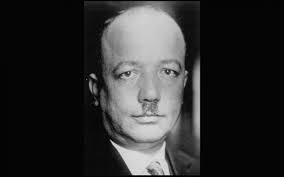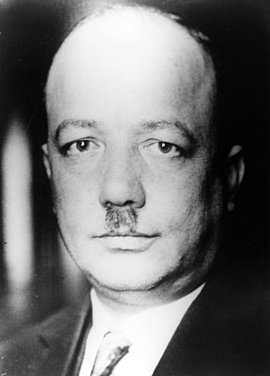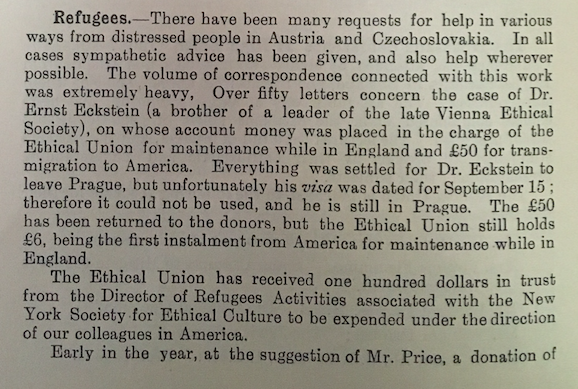Today on Holocaust Memorial Day we remember victims of the genocidal Nazi regime and of the many similar acts of other governments in the years since. As it’s Humanists UK’s 125th anniversary and a year for humanist history, I also want to think about the Nazis’ humanist victims.
‘The fight against the atheist movement’
Before the rise of Hitler, humanist culture was strong in Germany. Even the English word humanism came to us in the nineteenth century from the German ‘Humanismus’.
Humanist and freethinking organisations were banned early in the Third Reich. This included the German Freethinkers League (Deutscher Freidenkerbund) which was banned in 1933. At the time it boasted a membership of over half a million people. On 14 May 1933, The New York Times reported in an article titled ‘Atheist Hall Converted; Berlin Churches Establish Bureau to Win Back Worshipers’ that:
‘In Freethinkers Hall, which before the Nazi resurgence was the national headquarters of the German Freethinkers League, the Berlin Protestant church authorities have opened a bureau for advice to the public in church matters. Its chief object is to win back former churchgoers and assist those who have not previously belonged to any religious congregation in obtaining church membership. The German Freethinkers League, which was swept away by the national revolution, was the largest of such organizations in Germany.’
Later that year, during a speech delivered in Berlin 24 October 1933, Hitler celebrated that he had successfully won his ‘fight against the atheist movement’ and ‘stamped it out’. On 26 August 1934, Hitler cited the ‘atheistic movement’ as one of the ‘symptoms of degeneracy in the world of to-day’, along with ‘Bolshevik culture’ and ‘criminality’.
Humanist refugees
This is Max Sievers, who was the last chair of the Deutscher Freidenkerbund. He was already in exile in Belgium at the time the ban came into effect. He fled to the USA in 1939 but was denied a visa and returned. He was guillotined for treason in Brandenburg Prison in 1943.
Anti-humanist sentiment also spread into countries annexed by the Nazi regime. Text found in the Ethical Union (now Humanists UK) annual reports from 1939 reveal that the Union raised funds to help the American Ethical Union to support refugees. In this case, Dr Ernst Eckstein – the brother of a leader of the late Vienna Ethical Society – sought refuge in America. Though the Union was ultimately unable to assist Dr Eckstein, because of an issue with his visa, a document from 1940 shows that he did eventually get to Chile. The same document refers also to the ‘Many letters… received during the late spring and summer of 1940 concerning the internment of friendly aliens’ and that ‘whenever possible help and advice were sent.’
Restoration
It has taken many years for humanist organisations in Germany to restore themselves to the membership numbers and social recognition they enjoyed in the late nineteenth and early twentieth centuries. Even now, as Dr Frieder Otto Wolf – President of Humanistischer Verband Deutschlands (the national association of German humanists) explains, the visibility and weight of humanists in the German population has been, and still is, strongly reduced by the annihilation of humanist and freethinking organisations by the Nazi regime.
The same was true of humanist organisations across Europe and, in fact, in the end it proved impossible to reform the 19th century world union that had held its last world assembly in Conway Hall in 1938. A new organisation was needed – and that’s how Humanists International was born. The first resolution of Humanists International when it met in Amsterdam in 1952 was to give unanimous support to the UN’s new Universal Declaration of Human Rights. Out of all the horror came a refreshed commitment to human solidarity.
That commitment needs constant restatement, and that’s what Holocaust Memorial Day means to me. It’s a time not just to remember the victims of genocide, but to reinvigorate our commitment to universal human rights and dignity.



